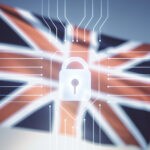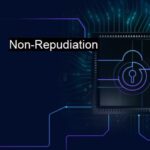NCIC is a computerized index of criminal justice information (i.e. criminal record history information, fugitives, stolen properties, missing persons). It is available to federal, state, and local law enforcement and other criminal justice agencies and is operational 24 hours a day, 365 days a year.
The National Cyber Security Centre (NCSC) is the UK’s authority on cybersecurity and a division of GCHQ (Government Communications Headquarters). Established in 2016, the NCSC’s core purpose is to help make the United Kingdom the safest place to live and work online. It provides expert guidance and technical support to government departments, businesses, critical infrastructure providers, and the public to protect against cyber threats.
NFC, or "Near Field Communication" technology is a form of wireless communication that allows devices to exchange data. Though unlike Bluetooth or Wi-Fi, NFC compatible devices must be in very close proximity to each other to interact. Because of its versatility, it has been implemented into a wide range of devices.
Non-Human Identities (NHIs) refer to digital identities assigned to machines, applications, services, and devices that interact within IT systems. These identities perform automated tasks, access data, or initiate network communication without human involvement. Managing and securing NHIs is critical, as they often possess high-level privileges but lack visibility or strong access control.
The National Institute of Standards and Technology (NIST), a part of the U.S. Department of Commerce (DOC), is responsible for promoting innovation and industrial competitiveness in the U.S. The agency developed NIST 800-171 to protecting unclassified information in nonfederal information systems and organizations.
NIS 2 (Directive (EU) 2022/2555) is the European Union’s updated framework for cybersecurity, replacing the original NIS Directive (2016). It is designed to enhance cybersecurity across the European Union by establishing a high common level of security for network and information systems.
Non-repudiation ensures that users cannot deny performing specific actions within a system. It is vital for accountability in secure environments like healthcare, finance, and legal systems. GateKeeper Proximity supports non-repudiation by logging identity-bound access events through proximity-based authentication.
According to studies, over 30% of all support tickets are related to password resets/forgotten passwords.
Enterprise 2FA and password manager. One key for all your passwords. Experience fully automated login and security. Faster MFA, auto-OTP, password manager, and worry-free workflow with proximity-based privileged access management for Windows 11, 10, 8, 7, VPNs, websites, and desktop applications including MES, EHR, CAD, and more.
or call 240-547-5446








